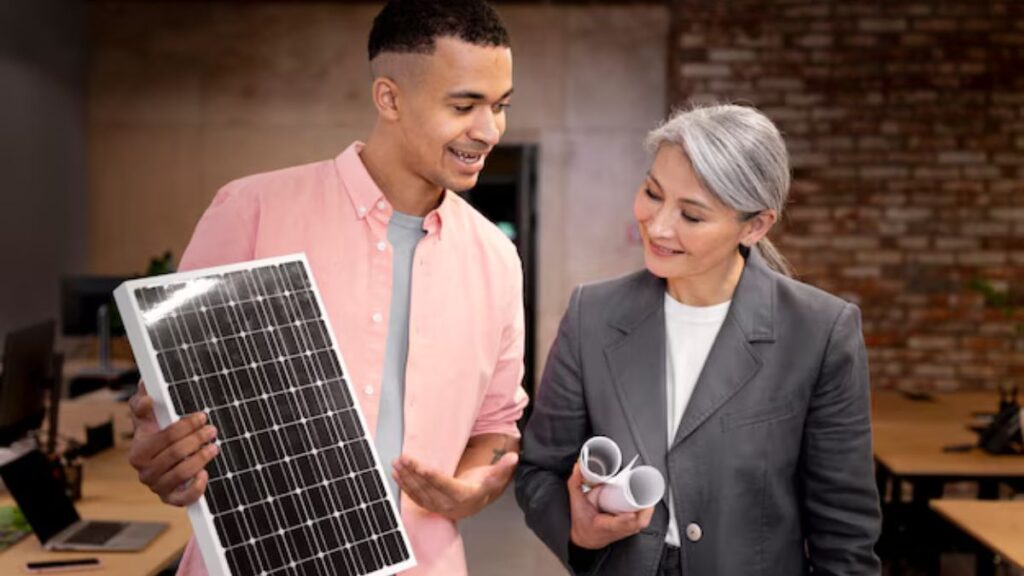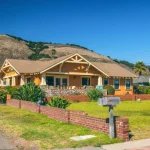With the increasing shift toward sustainable energy, solar panels are widespread worldwide in homes. Solar power not only reduces utility costs but also enhances property value. However, one critical factor often overlooked is the strength and condition of the roof itself. A weak or damaged roof can undermine the benefits of solar panels, turning what should be a long-term investment into a series of costly repairs. This guide explores how roof quality impacts your solar installation and practical advice to safeguard your roof and solar setup.
Understanding Roof Requirements for Solar Installations
Before installing solar panels, assessing your roof’s condition and strength is essential. Solar panels add significant weight, which can strain an already compromised roof. A solid roof provides the necessary support, but the structure may struggle under the added load if there are existing issues—such as cracks, sagging, or weak materials. According to seasoned roofers from Top Notch Roofing Killeen, working with professionals ensures that potential problems are addressed early. A comprehensive roof inspection helps identify weaknesses and reinforces areas that might otherwise give way, making it safer to proceed with your solar installation.
The Role of Roof Age in Solar Panel Performance
Older roofs may not be the ideal base for solar panels due to their potential for wear and tear. If your roof is approaching the end of its lifespan, the added weight and requirements of solar panels can accelerate its deterioration. Roofs typically have a lifespan of 20-30 years, depending on the materials used and climate exposure. If a roof replacement is due within the next few years, replacing it before installing solar panels may be wise. This proactive approach prevents the hassle of removing and reinstalling solar panels later, saving time and money.
How Roof Leaks and Moisture Affect Solar Stability
Roof leaks are a significant concern for homes with solar panels, as water damage can compromise the roof’s integrity and the solar system. Water seeps into cracks or weak spots, leading to mold growth, material decay, and structural weakening. The additional weight of solar panels further complicates the issue by creating more potential entry points for moisture. Addressing leaks and waterproofing the roof before installation is essential. By taking these preventive measures, homeowners can protect their investment and ensure the roof remains strong and resilient.
Impact of Roof Weakness on Solar Panel Efficiency
A weak roof not only endangers the structure but also impacts the solar panels’ efficiency. Panels require a stable and secure base to function at optimal levels. If the roof shifts or sags under the weight of the panels, this can affect their angle and exposure to sunlight, ultimately reducing their energy output. Moreover, a weakened roof may require frequent repairs, leading to interruptions in energy production. Ensuring that your roof is solid and stable helps maintain the panels’ position and maximizes their effectiveness in harnessing solar energy.
Potential Costs of Installing Solar on a Weak Roof
Installing solar panels on a compromised roof can lead to numerous hidden costs. Frequent repairs, panel repositioning, and potential roof replacements add to the expense, reducing the financial benefits of your solar investment. Removing and reinstalling solar panels for roof repairs can be costly, requiring specialized labor. Buyers can avoid these additional costs by investing in a robust roof beforehand. This upfront investment may seem substantial, but it ultimately safeguards the solar system and prevents future expenses related to repairs and maintenance.
Benefits of Reinforcing Your Roof Before Solar Installation
Reinforcing your roof before solar panel installation is one of the best ways to protect your investment. Strengthening the roof involves fortifying weak spots, ensuring proper sealing, and making necessary repairs. These efforts extend the roof’s lifespan and provide a stable foundation for the solar system. A reinforced roof is less likely to need repairs, reducing the risk of costly interruptions to solar energy production. These steps create a solid partnership between your roof and solar panels, ensuring both functions efficiently and last years.
Partnering with professional roofing and solar experts is crucial to a successful installation. Experienced professionals have the tools and expertise to accurately evaluate your roof’s condition and recommend the necessary improvements. They understand solar panels’ demands on a roof and can offer tailored solutions to enhance its durability. Opting for experts simplifies the process and guarantees that the installation meets industry standards. With skilled support, you can be confident that your roof will fully support your solar investment without compromising its longevity.
A robust roof is fundamental to a successful solar investment, providing the strength and stability needed to support a solar system. Addressing roof weaknesses before installation minimizes risks, saves costs, and optimizes energy efficiency. Reinforcing your roof, working with experts, and committing to regular maintenance create a strong foundation for solar energy.







